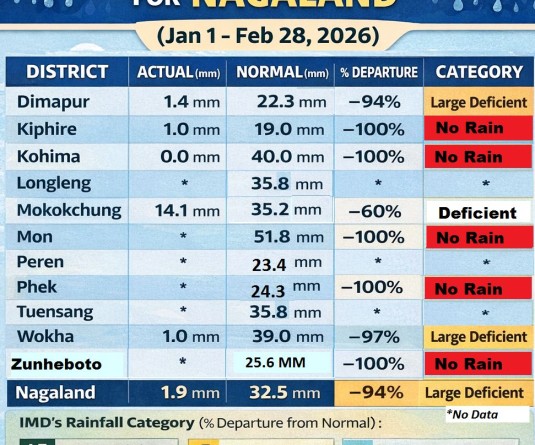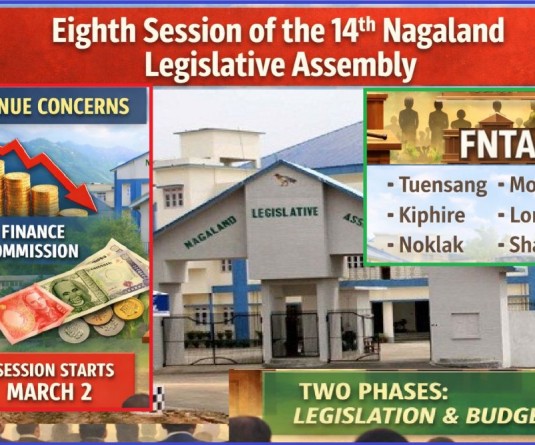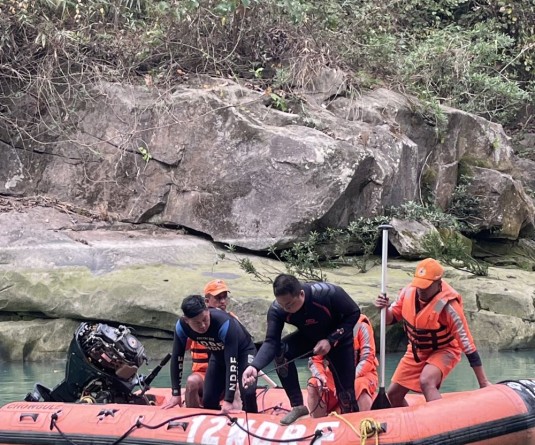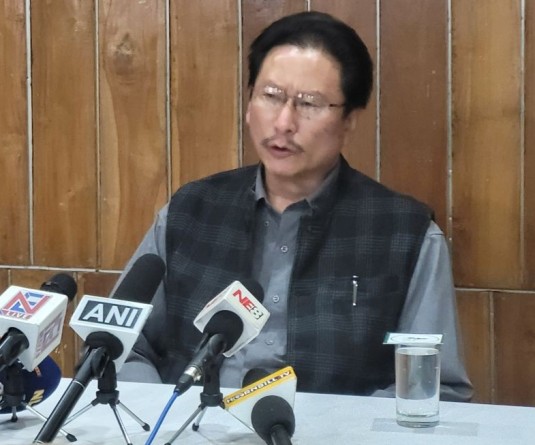Nagaland's Director General of Police, Rupin Sharma addresses the "Dismantling Systemic Barriers" seminar organised by the Department of Philosophy, Patkai Christian College (Autonomous) to observe World Day of Justice at the College’s Bundrock Chapel Hall on February 20. (Morung Photo)
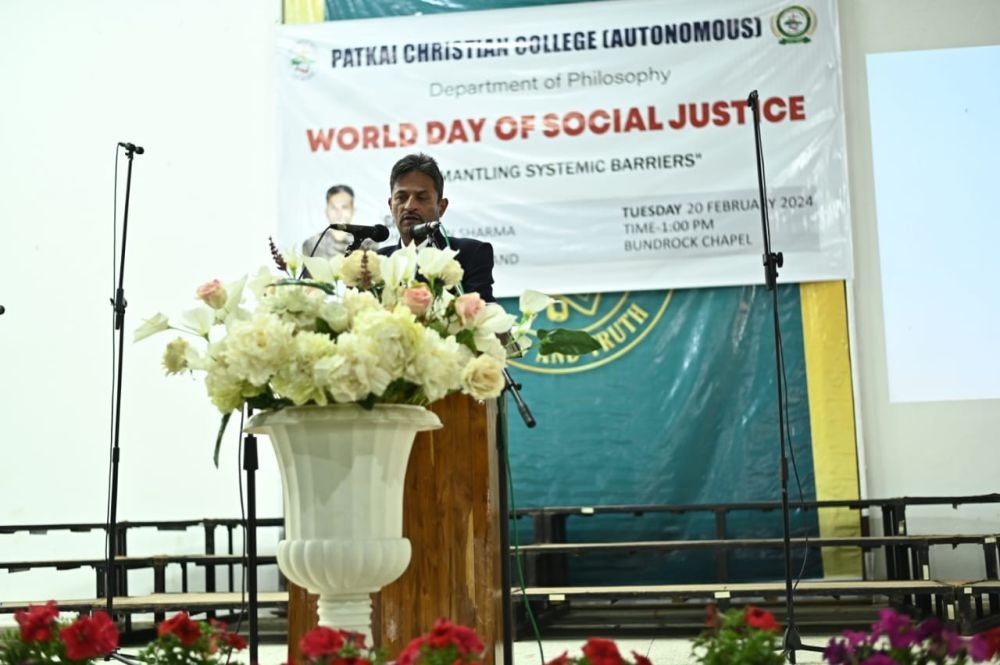
Morung Express News
Patkai | February 20
Nagaland's Director General of Police (DGP), Rupin Sharma today emphasized the need for Nagas to engage in discourse and redefine what constitutes essential traditional and customary practices to ensure the well-being of society, particularly the younger generation, in the future.
To this end, he called for apex bodies to come together, confer, and decide where the state needs to be in the next 10 years.
‘Once decided, we can develop pathways to breaking systemic barriers such as tribalism, corruption, etc.,’ he added, addressing a seminar theme "Dismantling Systemic Barriers" organised by the Department of Philosophy, Patkai Christian College (Autonomous) to observe World Day of Justice on February 20.
Dwelling on the sensitive issue of customary practices, Sharma urged an honest evaluation of their relevance in the present and future, while insisting that he has nothing against Article 371 (A).
Drawing parallels of elections in Nagaland with historical malpractices like Sati and child marriage in Hindu society in colonial India, he noted that sometimes malpractices become norms without society realising and often necessitate intervention from 'outside.'
The DGP aslo stressed the need for open discourse, referencing the recent Hijab case in Karnataka as an example of focusing on 'essential practices.'
Similarly, Nagas need a set of essential customary practices, he said.
Those practices that identify one as a Naga should not be tampered with and preserved to the extent possible. However, they should be prepared to slowly give up these non-essential practices hindering progress, he opined.
"Once we decide on what contains those essential practices, I think we can let go of the rest," he said, adding that this would help in the development of Nagaland and society.
He also cautioned against vested interests exploiting customs for personal gain or to cling to power, even if they impede progress, and stressed the importance of prioritising the well-being of society over individual interests.
Dual Approach
The DGP also advocated for a dual approach of seeking advice from parents and elders while also relying on modern laws to address contemporary issues.
With the technological advancements of the modern era, he encouraged students to leverage the vast resources available to find legal solutions to problems.
Sharma posited that in today's world, nearly every problem has a legal answer waiting to be discovered through informed inquiry.
He also urged adherence to modern laws, which are mostly designed to dismantle societal inequalities.
According to him, meaningful progress can only occur when society actively engages in discussions to understand diverse perspectives and find common ground.
Acknowledging the complexity of a diverse and unequal world, Sharma contended that absolute equality is a myth.
"I would not say that we should propagate inequalities. Inequality that hinders the progress of human beings as unequal, I think that is where we need to intervene," he added.
He also noted that wisdom is not limited by age and urged the youth to contribute their ideas to societal development.
Sharma recognised the inevitability of change and urged a collective decision-making process to progress and the role of education, economic empowerment, and open dialogue in breaking down barriers.
Instilling critical thinking
However, he regretted that teaching methodologies in Nagaland seem to be antiquated, possibly hindering discourse and participation.
He located a non-participative culture to historical circumstances and urged educators not to stifle students' questions.
Expressing concern about the persistence such teaching methods in public schools, Sharma stressed the importance of fostering an environment where questioning is encouraged.
Sharma warned that a failure in dialogue could lead to violence, highlighting the importance of negotiation and discussion.
Addressing the fight against drugs, Sharma underscored the government's efforts in the last one and a half years. He called for collective action against drug abuse, cautioning that it could become a systemic barrier if left unaddressed.
Earlier in her keynote address, Dr. Wojanbeni S Yanthan of the PCC’s Philosophy Department cited Plato to drive home the point that "the worst form of Injustice is pretended Justice."
“We are constantly confronted by the pervasive and ongoing impacts of intersecting systems of oppression rooted in racism, economic inequality, lack of freedom, exploitation, marginalization, etc., implies one thing - they create barriers for equity, thereby causing substantial harm to the affected individuals and the community, she added.
Dr. Yanthan thus stated that the Tuesday event was a conscious effort by the department and the college "to instill awareness of the seriousness of social injustice and the need to value social justice," inviting the gathering to critique together on own created systemic barriers and re-envisioning a fairer world.
"If knowledge is power, why not use it to disable systemic barriers and enable social justice?" she posed. In his welcome address, PCC Dr. Thepfuvilie Pieru also noted that education plays a vital role in challenging changes, stereotypes, and prejudices that perpetuate injustices and inequality via an inclusive perspective and diverse syllabi.


